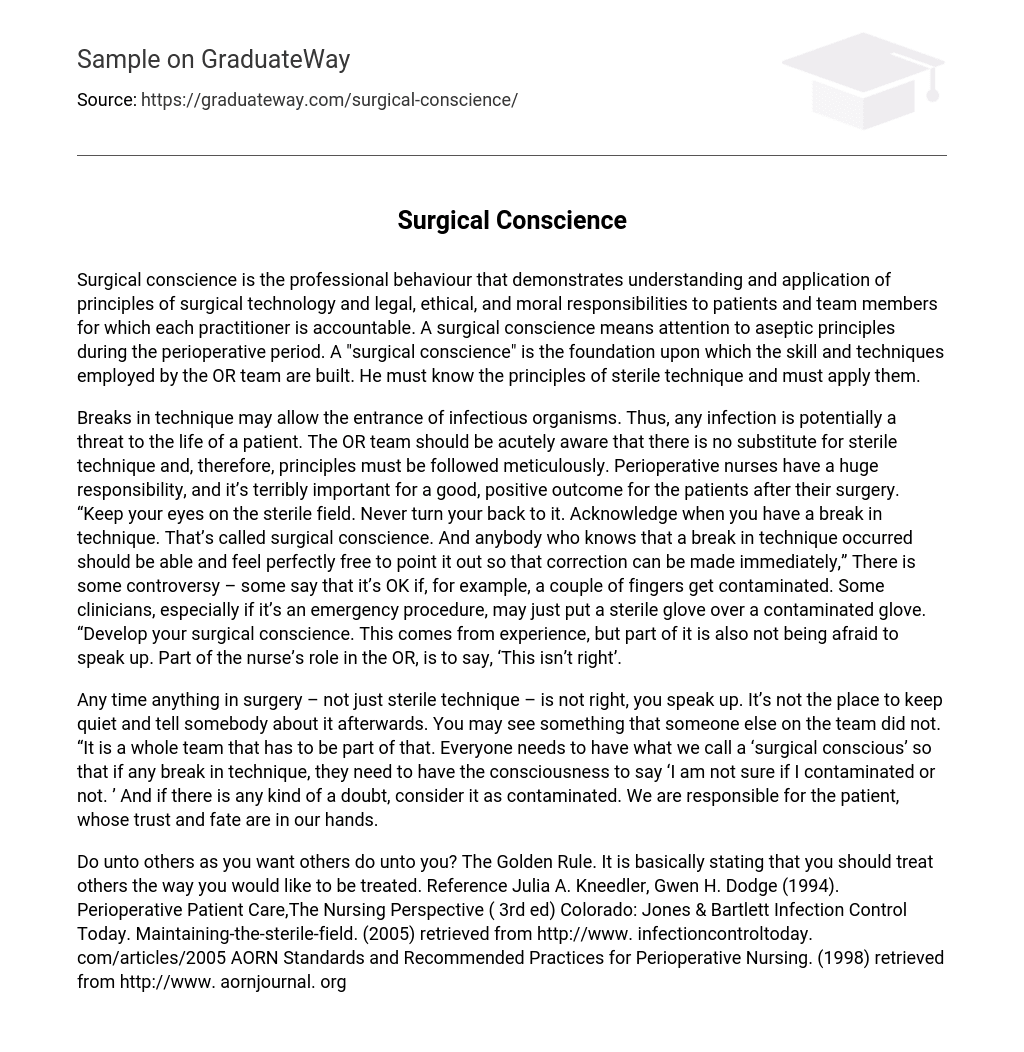Surgical conscience is the professional behaviour that demonstrates understanding and application of principles of surgical technology and legal, ethical, and moral responsibilities to patients and team members for which each practitioner is accountable. A surgical conscience means attention to aseptic principles during the perioperative period. A “surgical conscience” is the foundation upon which the skill and techniques employed by the OR team are built. He must know the principles of sterile technique and must apply them.
Breaks in technique may allow the entrance of infectious organisms. Thus, any infection is potentially a threat to the life of a patient. The OR team should be acutely aware that there is no substitute for sterile technique and, therefore, principles must be followed meticulously. Perioperative nurses have a huge responsibility, and it’s terribly important for a good, positive outcome for the patients after their surgery. “Keep your eyes on the sterile field. Never turn your back to it. Acknowledge when you have a break in technique. That’s called surgical conscience. And anybody who knows that a break in technique occurred should be able and feel perfectly free to point it out so that correction can be made immediately,” There is some controversy – some say that it’s OK if, for example, a couple of fingers get contaminated. Some clinicians, especially if it’s an emergency procedure, may just put a sterile glove over a contaminated glove. “Develop your surgical conscience. This comes from experience, but part of it is also not being afraid to speak up. Part of the nurse’s role in the OR, is to say, ‘This isn’t right’.
Any time anything in surgery – not just sterile technique – is not right, you speak up. It’s not the place to keep quiet and tell somebody about it afterwards. You may see something that someone else on the team did not. “It is a whole team that has to be part of that. Everyone needs to have what we call a ‘surgical conscious’ so that if any break in technique, they need to have the consciousness to say ‘I am not sure if I contaminated or not. ’ And if there is any kind of a doubt, consider it as contaminated. We are responsible for the patient, whose trust and fate are in our hands.
Do unto others as you want others do unto you? The Golden Rule. It is basically stating that you should treat others the way you would like to be treated. Reference Julia A. Kneedler, Gwen H. Dodge (1994). Perioperative Patient Care,The Nursing Perspective ( 3rd ed) Colorado: Jones & Bartlett Infection Control Today. Maintaining-the-sterile-field. (2005) retrieved from http://www. infectioncontroltoday. com/articles/2005 AORN Standards and Recommended Practices for Perioperative Nursing. (1998) retrieved from http://www. aornjournal. org





